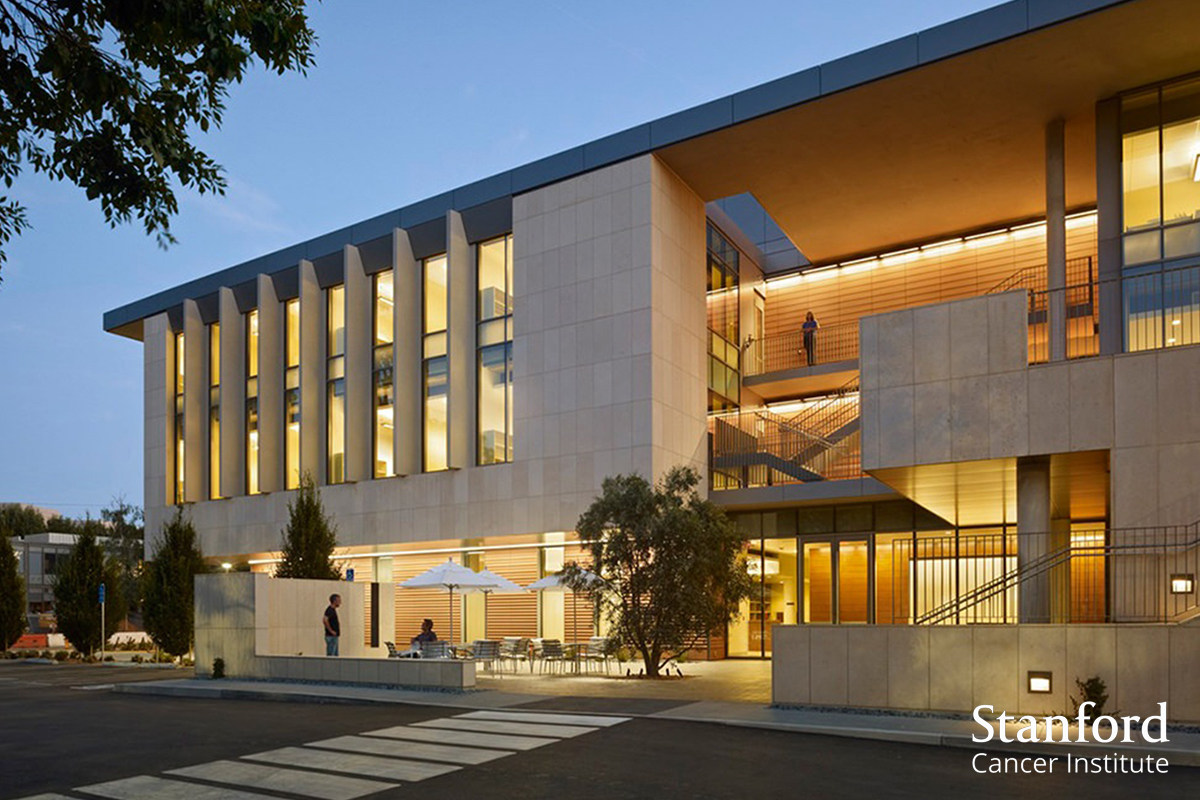
Trial Results: ECOG-ACRIN Research Round-Up
April 24, 2025
Trial Spotlight: A Closer Look at ECOG-ACRIN’s Studies for Adolescents and Young Adults with Cancer
April 24, 2025Institution Spotlight: Stanford Cancer Institute

 By Melinda L. Telli, MD
By Melinda L. Telli, MD
Voting Member, ECOG-ACRIN Principal Investigator Committee
and
Associate Director for Clinical Research, Stanford Cancer Institute; Professor of Medicine, Stanford University School of Medicine, Stanford University
The Stanford Cancer Institute was founded in 2004 and builds on Stanford’s long history of cancer research, which started in 1956 when Henry Kaplan developed the linear accelerator. The institute is a National Cancer Institute (NCI)-designated Comprehensive Cancer Center and serves 7.8 million people across 10 counties in northern California.
Embedded within Stanford University and the growing Stanford Health Care network, the Stanford Cancer Institute is singularly able to catalyze Stanford’s vast resources to advance understanding of cancer and rapidly translate research discoveries into improved prevention strategies and diagnostics and safer, more effective therapies. Unique among academic medical centers, Stanford combines elite programs in medicine, engineering, and computer science/information technology to address challenging problems in cancer science.
The Stanford Cancer Institute has six Cancer Center Support Grant-defined research programs: cancer biology and cancer stem cells, cancer imaging and early detection, cancer immunotherapy, cancer therapeutics, population sciences, and radiation biology. These programs address the spectrum of cancer science and build on institutional strengths in technology development and translational research to foster interdisciplinary collaboration among our 450+ faculty members, who represent 37 academic departments.
Dedicated to supporting research, the Stanford Cancer Institute offers several internal funding awards to faculty members and trainees throughout the year. Additionally, the Stanford Cancer Institute fosters the next generation of cancer scientists through educational programs, including the Cancer Biology PhD program and the Comprehensive Cancer Research Training Program.
Patients receive care at the Stanford Cancer Center, which is part of the Stanford Cancer Institute. Cancer centers are located in Palo Alto, Castro Valley, Emeryville, Pleasanton, and San Jose to provide access to patients across the Bay Area. On a yearly basis, 7000-8000 new patients with cancer are registered, and more than 2000 patients participate in cancer clinical trials.
Leadership Roles in ECOG-ACRIN Governance and Clinical Trials
Stanford has been a member institution since 1985 and is currently an ECOG-ACRIN Main Member Institution.
I am the principal investigator of Stanford’s ECOG-ACRIN affiliation and associate director for Clinical Research at the Stanford Cancer Institute. My research concerns the development of novel therapeutics and the clinical application of novel biomarkers for breast cancer treatment. I serve on the Breast Committees for ECOG-ACRIN and NRG Oncology and the Principal Investigator Committee for ECOG-ACRIN. I also served as study chair for PrE0105 (Telli ML. J Clin Oncol. April 2015) and ECOG-ACRIN Champion for NRG-BR003 (closed), which evaluates carboplatin’s role in the adjuvant treatment of triple-negative breast cancer.
Heather A. Wakelee, MD, is the chief of the Division of Oncology and deputy director of the Stanford Cancer Institute. Her work focuses on clinical trials in patients with lung cancer and other thoracic malignancies. She collaborates with basic scientists to develop prognostic and predictive correlates in lung cancer and with population scientists to evaluate how ethnicity and gender impact lung cancer. Dr. Wakelee previously served as principal investigator of Stanford’s ECOG-ACRIN affiliation and was co-chair of the ECOG-ACRIN Thoracic Committee from 2016-2021. She currently serves on the ECOG-ACRIN Executive Committee, Nominating Committee, and Task Force on Career Advancement. Dr. Wakelee received the Remarkable Mentor in Oncology Award in 2024 and the Young Investigator Award in 2015. She serves as study co-chair of EA5152 and EA5191 (both closed).
Joel W. Neal, MD, PhD, serves as study chair of EA5152 and EA5191. He is a member of the Thoracic Committee and the 2018 recipient of the ECOG-ACRIN Young Investigator Award.
James M. Ford, MD, serves as the ECOG-ACRIN study chair for EAY191, the ComboMATCH Precision Medicine Initiative (active). He co-leads this endeavor led by ECOG-ACRIN and NCI, as chair of the ComboMATCH Subcommittee, part of ECOG-ACRIN’s Developmental Therapeutics Committee. In these roles, he coordinates with members across National Clinical Trials Network (NCTN) groups in the design and conduct of individual treatment trials under the master screening protocol. Dr. Ford served as ECOG-ACRIN Champion for NSABP B-55/OlympiA, a practice-changing trial for the adjuvant treatment of patients with high-risk breast cancer and germline BRCA1 and BRCA2 pathogenic variants.
Tait D. Shanafelt, MD, serves as study chair of two phase 3 trials in chronic lymphocytic leukemia (CLL), EA9161 (closed) and the practice-changing E1912 study. The results of E1912 led to an FDA approval for the combination of the targeted agent ibrutinib with the immunologic agent rituximab as a standard treatment for CLL patients 70 or younger (Shanafelt TD. N Engl J Med. July 2019). He is a member of the Leukemia Committee. Like Drs. Wakelee and Neal, Dr. Shanafelt is a recipient of the ECOG-ACRIN Young Investigator Award. He received the award in 2017 prior to joining Stanford, while at the Mayo Clinic.
George A. Fisher, MD, served as co-chair of the Gastrointestinal Cancer Committee from 2015- 2021. Dr. Fisher currently serves as co-chair for EA2183 (active) and EA2142 (closed).
Julia D. Ransohoff, MD, and Ameen Abdulla Salahudeen, MD, both received the Paul Carbone, MD Fellowship Award in 2023 and 2016, respectively.
Martina Steffen, MS, associate director for clinical trial operations, is a member of the Core Committee for the Clinical Research Associates (CRA) Committee
![ECOG-ACRIN logo[19516]275×75](https://blog-ecog-acrin.org/wp-content/uploads/2021/03/ECOG-ACRIN-logo19516275x75.png)
